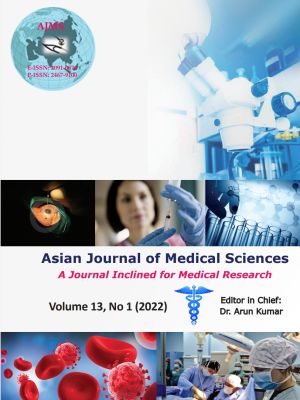Unveiling the omicron B.1.1. 529: The variant of concern that is rattling the globe
Keywords:
COVID-19, SARS-CoV2, Omicron, Pandemic, Variant of concernAbstract
Most viruses–including SARS-CoV-2, seem to have evolved over time. The lack of stringent proofreading mechanisms makes viral DNA/RNA replication error-prone. When a virus replicates, it sometimes changes a little bit, which is called mutations. Any virus with one or more new mutations can be referred to as a “variant” of the original virus. The last 2 years have witnessed the emergence of a large number of variants. Since the pandemic’s beginning, the SARS-CoV-2 coronavirus has mutated extensively, resulting in the emergence of different variants of the virus. One of these is the delta variant (arising from Pango lineage B.1.617.2) that took the word in a storm this year (February-July). The current a variant of concern is the B.1.1.529 (Omicron) variant reported first from South Africa on November 24, 2021. In recent weeks, infections have been widely reported, along with the increased detection of the B.1.1.529 variant. We reviewed the emergence of the new variant (B1.1.529) and its possible outcomes.
Downloads
Downloads
Published
How to Cite
Issue
Section
License
Copyright (c) 2021 Asian Journal of Medical Sciences

This work is licensed under a Creative Commons Attribution-NonCommercial 4.0 International License.
Authors who publish with this journal agree to the following terms:
- The journal holds copyright and publishes the work under a Creative Commons CC-BY-NC license that permits use, distribution and reprduction in any medium, provided the original work is properly cited and is not used for commercial purposes. The journal should be recognised as the original publisher of this work.
- Authors are able to enter into separate, additional contractual arrangements for the non-exclusive distribution of the journal's published version of the work (e.g., post it to an institutional repository or publish it in a book), with an acknowledgement of its initial publication in this journal.
- Authors are permitted and encouraged to post their work online (e.g., in institutional repositories or on their website) prior to and during the submission process, as it can lead to productive exchanges, as well as earlier and greater citation of published work (See The Effect of Open Access).




